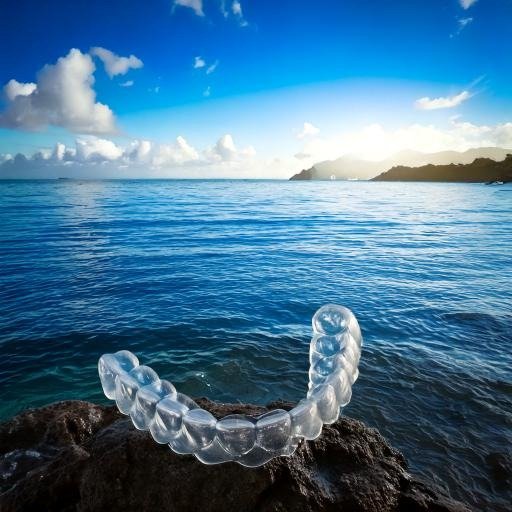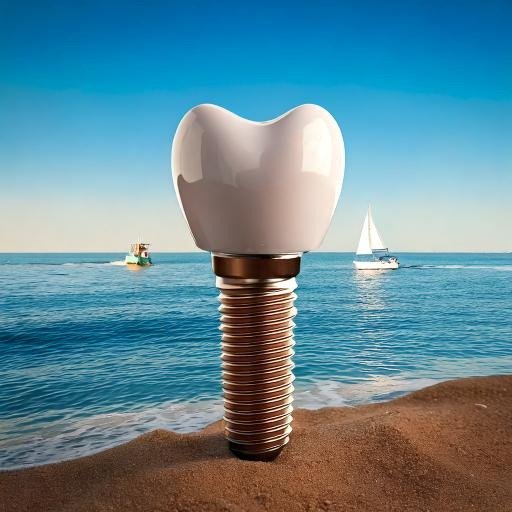If you’ve recently undergone a dental implant procedure, you might be wondering what you should eat during your recovery. The food after a dental implant plays a crucial role in ensuring your healing process is smooth and comfortable. The right types of food can aid in reducing inflammation, promoting healing, and avoiding any discomfort during the early stages of recovery. In this article, we will guide you through the best foods to eat after your dental implant, what to avoid during the healing process, and how to care for your implants through your diet.
What to Eat After a Dental Implant
The first few days after your dental implant surgery are crucial for proper healing. One of the most important aspects of your recovery is eating the right food after a dental implant. In the first 48 hours, it’s essential to avoid foods that might irritate the surgical site or put strain on your healing gums. You will want to focus on foods that are easy to chew, soft, and nutrient-dense to promote healing without discomfort.
Food after a dental implant should be gentle on your gums but rich in essential nutrients that support bone growth, immune function, and tissue healing. During the first phase of recovery, eating the right foods can help ensure that your body has everything it needs to facilitate the healing of the implant and surrounding tissues.
While dental implants are designed to last a long time, how well they heal depends largely on your care and nutrition in the weeks following surgery. The foods you eat during this time will directly impact the success of the implant, as well as the speed at which your body heals.
As we continue through the article, you will learn about the types of food after a dental implant that are best for your healing process, what to avoid, and how to make your meals more suitable during this critical time.
Recommended Foods Immediately After the Procedure
Immediately following a dental implant procedure, it is essential to consume foods that won’t irritate the surgical site or put pressure on the implants. The key is to focus on soft, easy-to-eat foods that provide essential nutrients to help you heal effectively. Here are some of the best food options immediately after surgery:
1. Smoothies and Soups
Smoothies are not only soft but can be packed with vitamins, minerals, and proteins to support the healing process. Blending fruits like bananas, strawberries, and blueberries with a base of Greek yogurt or a non-dairy milk like almond milk gives you a nutrient-dense option without needing to chew. You can also add protein powder or nut butters to ensure you’re getting the necessary nutrients.
Soups, particularly creamy ones, are ideal for the first few days after your dental implant. You can opt for soups like cream of tomato, butternut squash, or potato soup. Just make sure they are not too hot, as extreme temperatures can cause discomfort and may interfere with the healing process.
2. Mashed Potatoes and Soft Vegetables
Mashed potatoes are soft and easy to swallow, making them a great post-implant food choice. Not only are they comfortable to eat, but they also provide an excellent source of carbohydrates for energy. You can make mashed sweet potatoes for added nutritional value, as they are rich in vitamins and minerals like vitamin A and potassium.
Soft, well-cooked vegetables like carrots, zucchini, and spinach are also good options. When prepared properly, these vegetables become soft enough to eat without causing discomfort, and they provide important nutrients to support healing.
3. Protein-Rich Foods
Protein is essential for tissue repair, making it crucial to include it in your diet after a dental implant. Foods like scrambled eggs, Greek yogurt, and tofu are great options. Scrambled eggs are soft, easy to eat, and packed with protein, while Greek yogurt provides not only protein but also probiotics, which help in maintaining a healthy gut and immune system.
Foods to Avoid During Implant Healing
While some foods are highly beneficial for recovery after a dental implant, there are certain foods you should avoid during the healing process to prevent complications. These foods may irritate the surgical site, interfere with healing, or cause discomfort. Here are foods to avoid during the first few weeks of recovery:
1. Hard, Crunchy Foods
Hard or crunchy foods like chips, nuts, and raw vegetables should be avoided. These foods can put stress on your implant site and may cause pain or discomfort. Additionally, they can become lodged in the surgical area, which could potentially interfere with healing.
2. Hot Foods and Beverages
Hot foods and drinks like coffee, tea, and spicy foods can irritate the gums and delay the healing process. Avoid anything too hot for the first few days to prevent any discomfort or complications from excessive swelling. Stick to lukewarm or cool foods and beverages instead.
3. Sticky Foods
Sticky foods like caramel, chewing gum, or candy can stick to your implant and irritate the surgical area. These foods can also increase the risk of plaque build-up around the implant site, which could lead to infection. It’s best to stay away from these foods until your gums have fully healed.
Ideas for Soft and Nutrient-Rich Meals Post-Implant
After your dental implant procedure, focusing on soft, nutrient-rich meals will help with your recovery while providing the necessary vitamins and minerals for healing. Here are a few meal ideas to consider:
1. Smoothie Bowls
Smoothie bowls are an excellent way to pack in multiple nutrients while keeping things soft and easy to eat. You can blend fruits like mango, berries, and bananas with a base of almond milk or coconut water. Add protein powder, chia seeds, or nut butter for extra nutrition. These bowls can be topped with soft ingredients like avocado or unsweetened coconut flakes.
2. Creamy Soups and Pureed Stews
Pureed soups and stews are perfect for keeping your meals soft and nutrient-dense. You can create a creamy carrot soup or a pumpkin stew. These soups can be made with a vegetable or chicken base and pureed to a smooth consistency. Adding some soft grains like rice or quinoa can make the meal more filling.
3. Soft-Cooked Oatmeal
Oatmeal is a warm, comforting meal that’s easy on the mouth. You can make it with almond milk or coconut milk for added creaminess. Top it with mashed bananas, ground flaxseeds, or almonds for extra flavor and nutritional value. Oatmeal is great for starting the day with a soft, nutritious meal.
When Is It Safe to Return to a Normal Diet?
It’s important to be cautious about when to reintroduce harder foods into your diet after a dental implant. While you can begin incorporating slightly firmer foods as your healing progresses, the first few weeks are critical for the implant’s success. Generally, most patients can return to a normal diet after about 2 to 4 weeks.
At this stage, your dentist will provide guidance on how to transition back to solid foods. The process should be gradual, starting with softer foods and slowly increasing the hardness of the foods you can comfortably chew.
Tips for Proper Chewing During the Healing Process
Chewing properly during the healing process is essential for protecting your dental implant and ensuring it integrates well with the jawbone. Here are some tips to follow during the recovery period:
Chew on the Opposite Side: To avoid placing stress on the implant site, chew food on the opposite side of your mouth. This will help prevent unnecessary strain on the newly implanted area.
Cut Your Food into Small Pieces: Cutting food into smaller, bite-sized pieces can make chewing easier and reduce pressure on the healing site. It also makes eating less stressful during the early recovery period.
Chew Slowly: Take your time when eating. Rushing through meals can lead to accidental biting down too hard on the implant site, causing discomfort or even damage.
The Importance of Hydration After a Dental Implant
Staying hydrated is critical for your overall health, especially during the recovery phase following a dental implant procedure. Drinking enough water helps keep your body hydrated, promotes healing, and supports proper circulation to the implant site. Proper hydration is also essential for maintaining a healthy level of saliva, which naturally helps clean the mouth and reduce the risk of infection.





